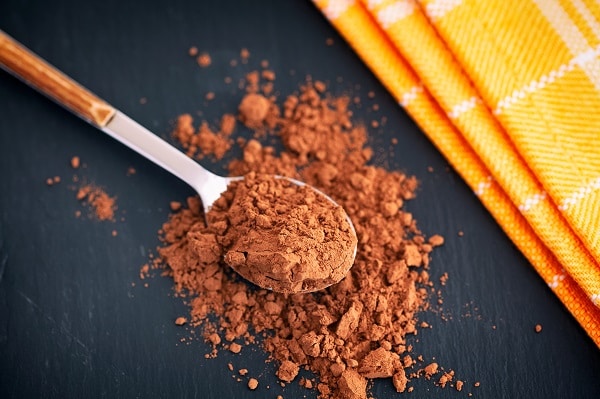While genetics and neurological conditions like Alzheimer’s can lead to memory loss issues, it is not uncommon for people with neither to forget where they left their car keys. Memory loss or a hard time recalling things and events are more common than you might think, even more so with today’s busy lifestyle.
We all have wished for better memory while we sat in the examination hall, or at times we spend the day knowing we are forgetting something important but not being able to recall information. But is there a way to improve memory? Diet and lifestyle can seriously impact one’s memory power, research suggests. Therefore, tweaking little habits in day-to-day life might be what you need. Below are ways you must consider to improve both your short-term and long-term memory skills.
Contents
- Natural Tricks For Short-Term Memory
- Meditation
- Avoid Added Sugar
- No To Alcohol. Yes To Exercise
- Additions To Your Diet
- Cocoa
- Vitamin D
- Curcumin –
- Anti-Inflammatory Foods –
- Ways To Improve Long Term Memory
- Avoid Distraction
- Read It Out Loud
- Organize
- Go In-Depth
- Relate And Pay Extra Attention
- Sleep Well And Enough
- Conclusion
- Related
Natural Tricks For Short-Term Memory
Meditation

Though everyone is aware of many health benefits of meditation, such as reduced stress and lower blood pressure, did you also know meditation can help improve memory?
Studies suggest that daily meditation helps increase gray matter in the human brain. Gray matter contains the neuron cell bodies, which decrease as you age, leading to bad memory and cognition. It is why people tend to become forgetful as they become older.
Meditation is known to work well for all age groups, young, adult, or older, with direct benefits to their short-term memory and spatial working memory for students indulging in practices like mindfulness.
Avoid Added Sugar

Consuming added sugar has been linked to many health issues, including chronic diseases and poor cognition. Regular intake of added sugar can reduce the brian volume in areas storing short-term memory.
Therefore, being mindful of what you consume and cutting down on added sugar from beverages to store-bought food will benefit your memory skill and overall health.
No To Alcohol. Yes To Exercise

While a small amount of alcohol might be good for health, one must avoid excessive drinking habits. Drinking not only harms health in the worst ways, but binge drinking can also lead to altered brain functioning and memory issues.
The hippocampus plays an integral role in memory. Drinking alcohol due to its neurotoxic effects can adversely influence and damage the hippocampus, leading to severe long-term health ailments and memory issues.
Even if you drink, make sure you exercise and maintain a proper diet to reduce the unpleasant effects. Exercising is linked to several long-term and short health benefits, with reduced risk of developing conditions like dementia later in life. In addition to this, research suggests that regular exercising, not necessarily intense, can stimulate the growth and development of neurons and secretion of neuroprotective proteins, both resulting in better cognitive performance, improved brain health, and good memory.
Additions To Your Diet
There are several foods known to work well for memory. Let’s take a look below at these additions and their benefits.
Cocoa

Cocoa is not only a treat to one’s taste buds but also for one’s brain activity. Flavonoids are the antioxidants present in cocoa that can help stimulate neurons and blood vessels’ growth, improving blood flow to the brain, especially in parts concerned with memory-related tasks. It is, however, essential to consume dark or cocoa that contains a potent dose of flavonoids to get the best and quickest results.
Vitamin D

Since lower vitamin D levels reduce cognitive performance and are cause several other health hazards, it is better to get yourself tested for vitamin D levels every once in a while. People with lower Vitamin D levels have a higher risk of developing dementia later in life. Several medications and foods are a good source of Vitamin D, which you can include in the diet to meet the body’s vitamin deficiency.
Curcumin –

Golden milk has been all the hype lately. Curcumin is in high concentrations in the roots of the turmeric plants, which is how you make golden milk. Curcumin does not just have powerful antioxidant and anti-inflammatory properties but an equally good effect on one’s brain health.
The animal studies suggested benefits include reducing oxidative damage, decreased brain inflammation, and lowered quantity of amyloid plaques (extracellular deposits on neurons causing tissue and cell death). Though there’s a need to conduct thorough research to get the precise effects of curcumin, it is known to work well for memory boost and decreased risk of Alzheimer’s based on several other data.
Anti-Inflammatory Foods –

A diet rich in anti-inflammatory properties and high antioxidants such as fruits and vegetables can help reduce the oxidative stress caused by free radicals and boost memory power. These also provide much-needed nutrition to the body while keeping problems like declining cognition, dementia, and memory loss away.
Ways To Improve Long Term Memory
While short memory alternatives like reminders, alarms, online calendars, to-do lists, etc., might work just fine, it is not the same for stuff you need to memorize for the long term. Below are some proven tricks to get the best out of the learning experience.
Avoid Distraction

Being attentive and focusing entirely on the information makes it easier for the brain to process it from the short-term to the long-term memory section. It is best to sit in a quiet room with no distractions like T.V, music, noise, etc., for the best results and active concentration.
Read It Out Loud

When you read things or information out loud, the chances of you remembering them is higher. This method works for studies and whether you have a habit of contemplating if you switched the stove off or not after leaving the room. When you say it out loud, you tend to listen to your voice, which makes remembering and learning twice as effective as reading it in mind.
Organize

While cramming is a big no, it is easier for the brain to process information following a pattern. Do not rush to cover everything simultaneously; instead, set levels and divisions going broader to detail.
Go In-Depth

Though understanding and learning the already tedious notes might seem complex, going a little in-depth on topics you find especially hard is an excellent trick to tweak it in your long-term memory box. Elaborating things and going in detail makes the broad stuff easier, even more so when you go through it more than once.
Relate And Pay Extra Attention

Try to find similarities between what you already know and what you are trying to learn. This bridge will help you recollect the new information quickly and more precisely. Moreover, paying extra attention or spending ten additional minutes on topics you have difficulty with gives the brain time to familiarize itself with this new information.
Sleep Well And Enough

Now, this trick goes for both short-term and long-term memory. Getting enough and sound sleep is of utmost importance as several studies suggest direct links of sleep deprivation with poor brain health and memory consolidation. Getting adequate sleep as per your age group improves memory and health and also helps keep you stress-free with better performance in whatever you do.
Conclusion
Poor memory frustrates and makes it hard to keep track of important day-to-day things and to maintain a composed and happy lifestyle in the long run. One must consult the doctor if elongated memory loss or other severe issues and symptoms indicate an underlying disease. However, even if you are certain it’s nothing serious, trying the above ideas will undoubtedly improve your memory skills, cognitive performance, and overall brain health.


